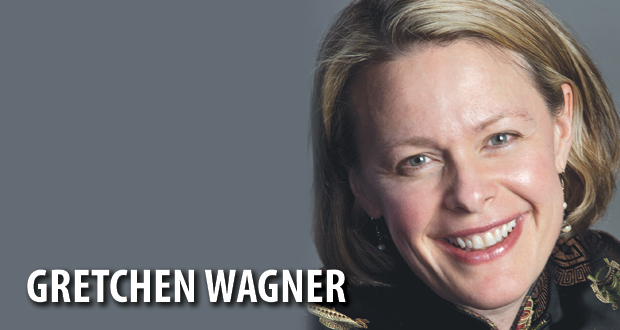 Few lawyers can honestly say they wound up precisely where they wanted to be when they embarked on their legal careers. Gretchen Wagner is one of the fortunate few.
Few lawyers can honestly say they wound up precisely where they wanted to be when they embarked on their legal careers. Gretchen Wagner is one of the fortunate few.
In February 2013, Wagner realized a dream when she became vice president and general counsel for Save the Children Federation, Inc. in Fairfield, Connecticut. The nonprofit operates health, education and emergency programs for children in the U.S. and around the world.
The path Wagner took to her job reads like a road map.
She knew from a young age that she wanted a job someday that would allow her to help people. As a college undergrad working for a Central American human rights commission, her eyes were opened to the possibility of becoming a lawyer and working in-house for a humanitarian organization. And Save the Children was one of a handful of nonprofits that Wagner earmarked — even before she entered Columbia Law School.
Wagner recently spoke with New England In-House about her path to, and work at, Save the Children.
Q. What set you on the path to becoming general counsel for a humanitarian organization?
A. I had taken a semester off of undergraduate studies to work for a non-governmental human rights commission in Central America. I happened by luck to work for the legal department of that commission. That sparked my interest in working in the law to achieve broader social aims. I actually went into law with the objective of working in the non-profit sector and working in-house.
Q. Your first experience as in-house counsel at a nonprofit was when you worked as an assistant GC at the Andrew W. Mellon Foundation from 1999 to 2003. What did you learn from that experience?
A. I had a terrific general counsel as a mentor there. The leadership at Carnegie Mellon was just inspiring. What I learned early on is what it means to be a good in-house counsel. It means not only managing risks and addressing litigation, but getting to “yes,” achieving the broader programmatic or business objectives of an organization. Save the Children is very, very focused on achieving immediate and lasting impact for children in measurable ways.
Q. What are your duties at Save the Children?
A. They are incredibly broad. Actually, that’s what I like best about this kind of role. [On any given day,] I might be looking at cross-border data privacy issues, a contract for programs in Mozambique, or rolling out new risk-management efforts across the agency. It keeps me on my toes.
Q. How is your job different from working in private practice?
A. As general counsel, you are very much part of the leadership of the organization, so all the legal risks and other risks you are trying to manage are viewed through the lens of trying to achieve the strategic objectives of the organization. You don’t get into that level of detail and have those strategic conversations as much when you are in a firm. You tend to work on discrete matters, but you don’t get that broader context. That is what I love about working in-house: You see the fuller panorama. Frankly, it allows me to be a better lawyer because I can understand and devise legal strategies within that broader picture.
Q. Do you see your role changing?
A. We recently restructured the legal department so that my role has changed. In addition to overseeing legal matters and compliance, my department now oversees enterprise risk management for the entire agency. We are embarking on a new effort to streamline and centralize that risk management effort. Previously, risk management was managed across different departments.
Q. What specifically are the risks that you are seeking to manage?
A. As with any nonprofit organization, it is very important to protect brand and reputation rights. Of course, there are also legal and compliance risks, operational risks, growth risks and strategy risks, so it runs the spectrum across the entire agency.
Q. For what matters and assistance do you turn to outside counsel?
A. We are really fortunate to have some fantastic firms — both large firms and smaller boutique firms — representing us. And we have some fantastic pro bono relationships. We turn to them primarily when it’s something that’s highly complex or cutting edge — like cross-border and European Union data protection and privacy. If we really have to do a “deep dive” into a particular area and it’s a complex issue, we’ll turn to outside counsel.
Q. What do you look for in the outside counsel your company hires?
A. What I look for in outside counsel is what I look for with the team of lawyers we have in house — that is, someone who can help me get to “yes,” who won’t just focus on black letter law, but who will help me work through the application of the law to the particular facts to see if we can achieve our objective. I’m looking for someone who’s highly focused on how we can get to “yes” given the parameters of the law.
Q. What are the characteristics of a good general counsel?
A. When you are dealing with other departments and other teams, it’s about being collaborative and open and breaking down barriers. You want to have a relationship with other departments such that people feel they can come to you to help them achieve their aims. I work very hard at being approachable. [Also,] someone who focuses not only on getting the work done, but someone who takes an interest in their own staff. That means being collaborative, open, accessible and not hierarchical. I definitely believe that two heads are better than one and you’ll get to a better answer if you collaborate on the tough issues.
 New England Biz Law Update
New England Biz Law Update
